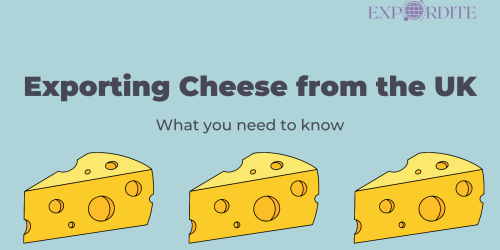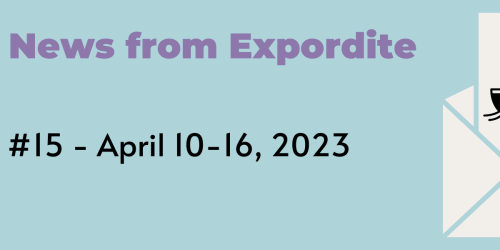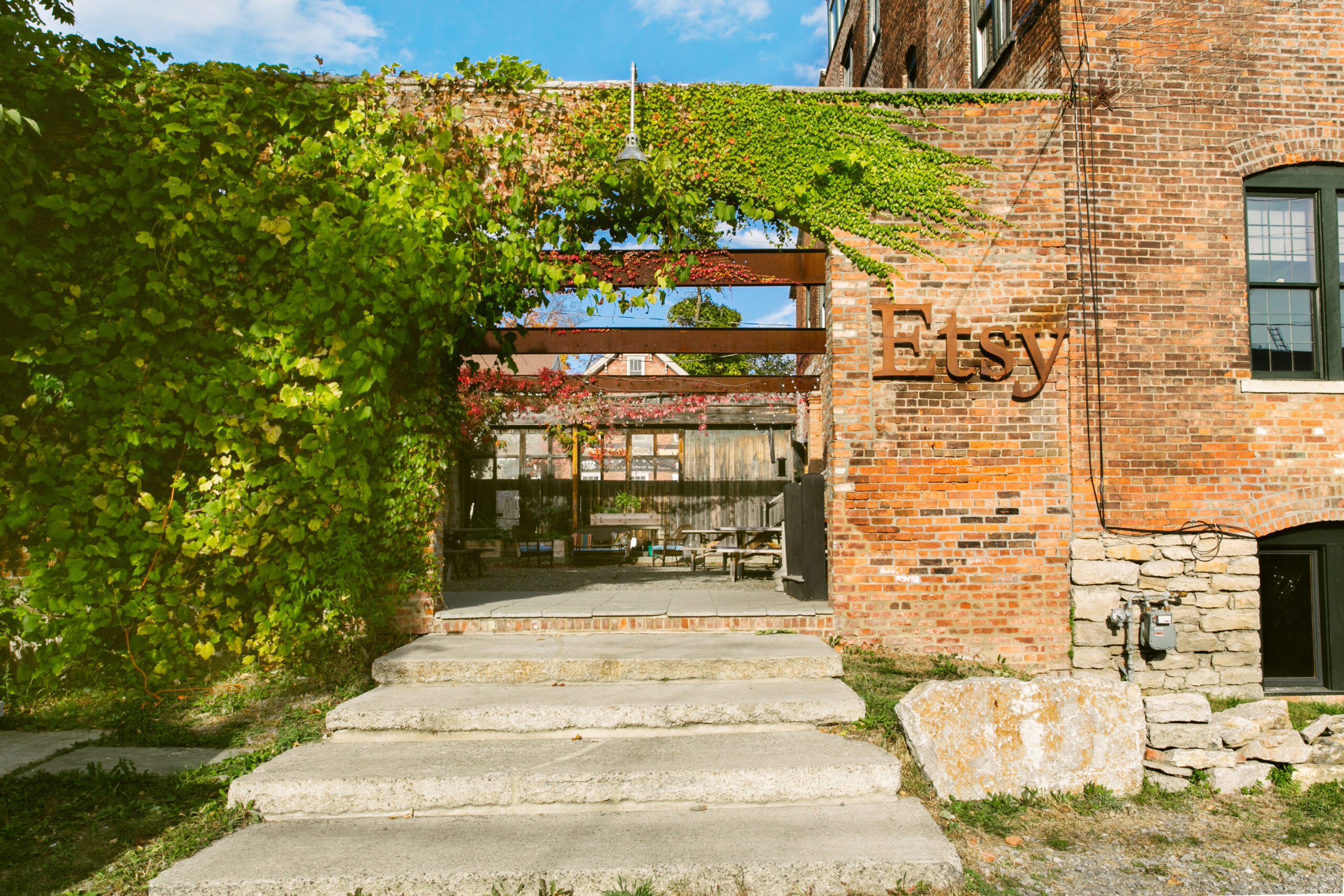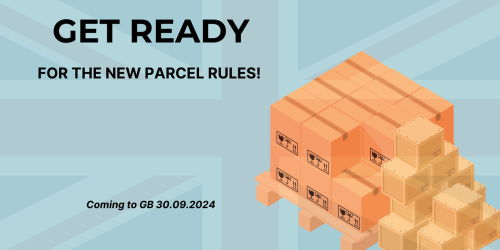10 UK Export News You Might’ve Missed – Week 5 (BTOM Edition)

In this edition of Export News from Expordite, we’ll cover the top 10 UK export news and headlines from week 5 of 2024 – January 29th-February 4th, 2024. Many of this week’s news will cover the new Border Target Operating Model (BTOM), which came into force on 31.01.2024.
Key News:
-
Brexit: Why meat, fish, cheese and dairy products will cost more from today
-
Government backs SMEs with new Help to Grow campaign and small business council
Export News
1. Post-Brexit controls on food and farm imports start
“Health certificates will now be required on EU goods ranging from cut flowers, to fresh produce including meat, fruit and vegetables.
Some industry bodies raised concerns the rules could cause delays and push up costs, but others said they would help UK farmers be more competitive.
The government said its border model would “minimise burdens for traders”.
The implementation of the changes has been delayed five times, in part to give businesses time to prepare and to reduce disruption to supply chains. The new border checks will also be phased in over the next year, with physical checks starting from 30 April.”
Source: BBC News
2. Changes to UK import controls from 31 January 2024
“In August 2023, the UK Government published its Border Target Operating Model which introduced new customs procedures and import controls for live animals; food of animal origin; germinal products; animal by-products; plants; plant products; fruit; vegetables; and horticulture products imported into Great Britain from Ireland and the rest of the European Union. These controls are referred to as sanitary and phytosanitary controls.
With these new procedures and controls due to take effect from 31 January 2024, the Food Safety Authority of Ireland (FSAI) is reminding food businesses of the implications for all exporters of food from Ireland to Great Britain, including those using the UK landbridge.
Export health certificates and phytosanitary certificates will be required for medium-risk animal products, plants and plant products imported to Great Britain, in line with the UK risk categories.”
Source: Food Safety Authority of Ireland
3.New Brexit food checks will test Britain’s supply chains
“The most high-profile changes for food and plant product imports from the European Union start to be phased in on Wednesday, after a series of delays.
This will mean significantly extra red tape. In particular, an expensive veterinary certificate will be legally required with consignments of fresh food and plant imports from the EU. These are a requirement from 00:01 GMT on Wednesday, but will not be subject to actual checks at the border for another three months.
The government acknowledges that the extra red tape and checks will increase food prices, pushing up the overall level of prices by 0.2 percentage points over three years.
The specific question is whether a lack of knowledge of the British changes in individual EU nations and regions will combine with a shortages of vets, and lead to many smaller EU businesses giving up on supplying the UK.”
Source: BBC News
4. Brexit: Why meat, fish, cheese and dairy products will cost more from today
“Food and fresh flower imports from the European Union are subject to new Brexit customs controls from today, adding more than £300m a year to the price of trading with the continent and forcing up the price of food for British consumers.
Under the new Brexit red tape, imports of chilled and frozen meat and fish, cheese and dairy products, and five common varieties of cut flowers will require an export health certificate, signed off by a European vet or plant inspector, before they can enter the UK.
From 30 April the same categories of goods will face physical inspections at the border, raising the prospect of delays and shortages in fast turnaround supply chains.“
Source: Sky News
5. Explainer: The new controls on Irish exports to the UK
“There are essentially three things that are changing under the introduction of these import controls.
The first is that full customs controls will be introduced, which means importers in Great Britain or their agents will have to have registered the load coming from Ireland on the UK Customs Declarations System.
Then there are also specific requirements when it comes to certain exports, particularly around animals.
And so all of that has required businesses to undertake a lot of setting up, registering on UK systems, liaising with UK importers or their agents and with authorities here, like local veterinary inspectors, for example.“
Source: RTE
6. Kemi Badenoch accused of covering up exports cliff edge
“Britain’s top business minister Kemi Badenoch stands accused of misleading parliament over an upcoming cliff edge set to clobber car exports to Canada.
The trade and business secretary told MPs on Monday there are “ongoing” negotiations with Canada to resolve looming tariffs threatening British vehicle exports despite trade talks between the two countries being put on ice.
But Canadian officials say that isn’t so. Badenoch paused the trade negotiations last Thursday and “there has been no discussion separately on rules of origin,” said a senior official at Global Affairs Canada, which manages the country’s global relations. There’s “nothing in the hopper for the future,” added the official.
British car manufacturers’ right to use EU parts in their vehicle exports — known as cumulation — hangs in the balance. Canada is a top 10 destination for British cars with exports worth £745.8 million (€874 million) annually.“
Source: Politico
7. Brexit – 4th Anniversary Update
“UK exports are growing – reaching £870 billion in the 12 months to November 2023, and services exports are at an all-time high03. Since the referendum, the UK economy has grown faster than Germany, Italy, and Japan and at a similar rate to France (end-Q2 2016 – Q3 2023)04.”
Source: GOV.uk
8. UK Export Finance boosts support for Northern Irish business with $100m HSBC UK deal
“UK Export Finance (UKEF) has announced a guarantee for up to $100m of new support to help a Northern Ireland tech firm meet growing international demand for its products and services.
Banbridge-based EOS IT Holdings has received a guarantee from UKEF to access up to $100 million from an HSBC UK Standby Letter of Credit facility.
The firm sells audio-visual and video-conferencing technology as well as related design, installation and support services. It manages a network of international subsidiaries from its headquarters in County Down.
EOS expects to invest in more equipment and create up to 100 jobs in Northern Ireland over the next two years as part of its growth plans.“
Source: GOV.uk
9. Government backs SMEs with new Help to Grow campaign and small business council
“The Government is today reaffirming its commitment to all the UK’s 5.5 million small businesses, with the creation of a new Small Business Council due to launch next month which will bring together SME leaders from across the country.
The Council builds on the Department’s existing support for SMEs and will provide a bespoke forum for small businesses to have their voices represented within Government.
Almost every business in the country is a small business (99.9%) who in turn support 27 million jobs across the UK, accounting for £4.5 trillion of annual turnover – which is why the government is making 2024 the year of the SME.
The government already has a strong record of backing British businesses – including by cutting taxes, removing barriers to growth and providing new opportunities with key trade deals, and improving access to finance. This includes through our export support service and UK Export Finance, which together are helping to get more small firms exporting around the world for the first time. “
Source: GOV.uk
10. Sir Ernest Shackleton’s Polar Medal at risk of leaving the UK
“Arts and Heritage Minister Lord Parkinson of Whitley Bay has placed an export bar on Antarctic Explorer Sir Ernest Shackleton’s Polar Medal.
The medal, valued at £1,760,000 (plus VAT of £44,000), is at risk of leaving the UK unless a domestic buyer can be found to save it for the nation.
The Arctic Medal was instituted in 1857 and renamed the Polar Medal in 1904. It is given to individuals for outstanding service to the field of polar research. It was first awarded to the participants in Captain Robert F. Scott’s successful first expedition to the Antarctic, and then to reward future expedition members and leaders.
The decision on the export licence application for the medal will be deferred for a period ending on 1 May 2024 (inclusive). At the end of the first deferral period owners will have a consideration period of 15 Business Days to consider any offer(s) to purchase the medal at the recommended price of £1,760,000 (plus VAT of £44,000). The second deferral period will commence following the signing of an Option Agreement and will last for five months.“
Source: GOV.uk
Want to get more international trade content straight to your inbox?






